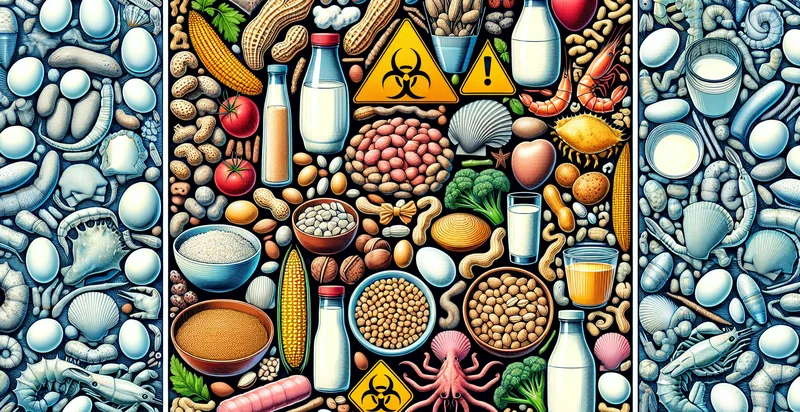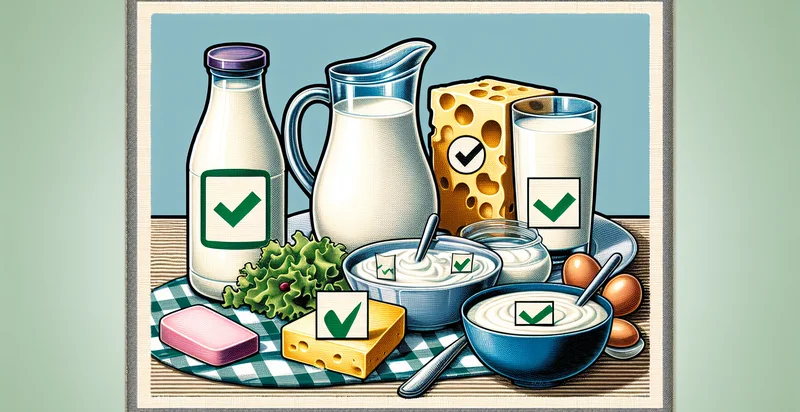Identify food allergens
using AI
Below is a free classifier to identify food allergens. Just input your text, and our AI will predict what food allergens are present - in just seconds.

Contact us for API access
Or, use Nyckel to build highly-accurate custom classifiers in just minutes. No PhD required.
Get started
import nyckel
credentials = nyckel.Credentials("YOUR_CLIENT_ID", "YOUR_CLIENT_SECRET")
nyckel.invoke("food-allergens", "your_text_here", credentials)
fetch('https://www.nyckel.com/v1/functions/food-allergens/invoke', {
method: 'POST',
headers: {
'Authorization': 'Bearer ' + 'YOUR_BEARER_TOKEN',
'Content-Type': 'application/json',
},
body: JSON.stringify(
{"data": "your_text_here"}
)
})
.then(response => response.json())
.then(data => console.log(data));
curl -X POST \
-H "Content-Type: application/json" \
-H "Authorization: Bearer YOUR_BEARER_TOKEN" \
-d '{"data": "your_text_here"}' \
https://www.nyckel.com/v1/functions/food-allergens/invoke
How this classifier works
To start, input the text that you'd like analyzed. Our AI tool will then predict what food allergens are present.
This pretrained text model uses a Nyckel-created dataset and has 17 labels, including Celery, Corn, Dairy, Eggs, Fish, Gluten, Lupin, Mustard, Nuts and Peanuts.
We'll also show a confidence score (the higher the number, the more confident the AI model is around what food allergens are present).
Whether you're just curious or building food allergens detection into your application, we hope our classifier proves helpful.
Related Classifiers
Need to identify food allergens at scale?
Get API or Zapier access to this classifier for free. It's perfect for:
- Menu Labeling Compliance: Restaurants and food establishments can utilize the food allergens identifier to ensure their menus are compliant with food safety regulations. By accurately labeling dishes that contain allergens, businesses can reduce the risk of allergic reactions among consumers.
- Grocery Store Product Categorization: Grocery stores can implement this function to classify products based on allergen content. This allows them to create dedicated sections for allergen-free products, enhancing the shopping experience for customers with food allergies.
- Food Delivery Services Safety: Food delivery apps can integrate the allergens identifier to provide users with clear information about the allergen content of dishes. This ensures safer choices for customers with dietary restrictions, increasing customer satisfaction and trust.
- Recipe Recommendation Systems: Cooking apps can leverage the food allergens identifier to filter out recipes that contain allergens specified by the user. This feature helps users with allergies discover safe and enjoyable meal options, encouraging continued use of the app.
- Food Product Development: Food manufacturers can utilize the allergens identifier during the R&D phase to evaluate new products for allergen content. This helps in designing products that cater specifically to allergen-free markets, increasing potential sales and market reach.
- Catering Services Customization: Catering companies can use the food allergens identifier to tailor their offerings to client specifications, ensuring that food served at events is safe for all attendees. Providing allergen-free options can result in a competitive edge in a market that prioritizes health and safety.
- Educational Tools for Nutrition: Health and nutrition organizations can employ the allergens identifier in educational platforms to raise awareness about food allergens. By informing consumers about potential allergens in commonly consumed foods, these organizations can foster healthier eating habits and prevent allergic reactions.


